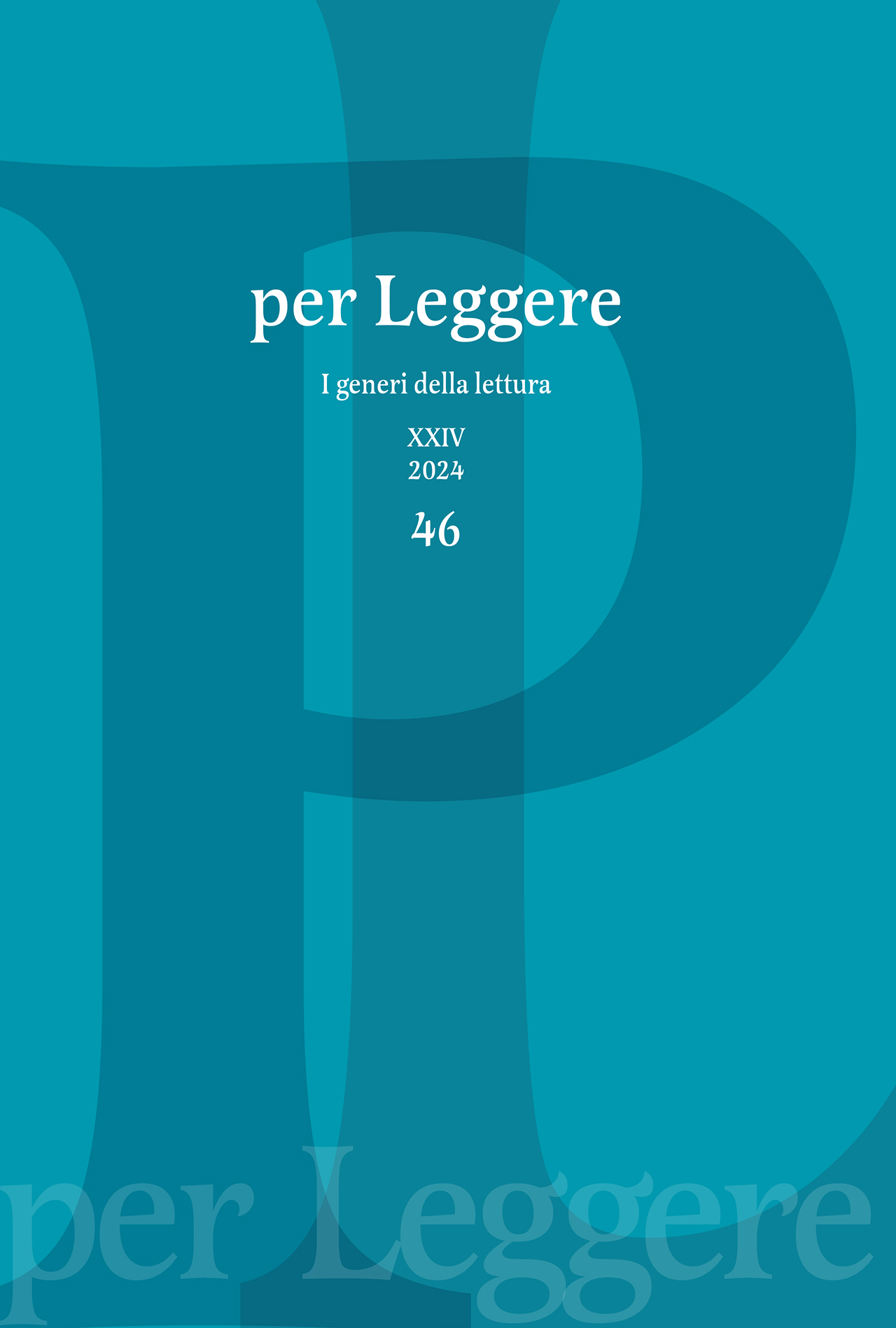Spying from behind a ‘Mashrabiyya’. Notes on Marco Ceriani’s poetry from a sonnet from Memoriré (2010)
DOI:
https://doi.org/10.7347/PLXXIV-462024-04Abstract
The article focuses on a sonnet from Marco Ceriani’s Memoriré (2010). The discussion starts from the historical distinction by Franco Fortini between literary ‘obscurity’ and ‘complexity’, which makes it possible to identify some unavoidable parts of obscurity in Ceriani’s poems. Nevertheless, following Rodolfo Zucco’s intuition, these can be partially understood by considering the poems’ structure. In fact, the metrical and prosodic scansion show an uninterrupted work (both on the horizontal and the vertical axes of the poem) that, if it can at times be enlightened and paraphrased, at other times it remains obscure. Likewise, one can observe a progressively more complex syntax and, at the same time, a shift from hendecasyllabic-centered verses to long or double verses. We will see how Ceriani’s thought can be read starting from the Heideggerian ‘being-towards-death’, and so we will underline the connection between metric structure, stylistic and lexical choices (of a baroque nature) and Heidegger’s philosophy. Lastly, even accepting that it is not possible to paraphrase all the shapes of the text, we will make an interpretive proposal for the sonnet.


